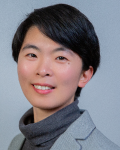2023
Mengxiao Wang
- Assistant Professor
- University of Southern California

Abstract
In early modern China, a major renewal of Buddhism coincided with a surging interest in theater. Departing from previous studies that focus on how dramas represent religious tenets and rites, this book investigates what Buddhist practitioners did with theater and how their engagements produced new devotional and artistic activities. Drawing on sermons by clerics, morality books, and plays on the page and stage, this research argues that monastics and the laity reshaped theater as a creative form of Buddhist endeavor. Playwriting, publishing dramas, acting, and spectating all came to be understood as viable practices to attain awakening. Breaking down disciplinary barriers, this project offers a new approach to the mutually constitutive relationships between religious and literary thought and practice.

